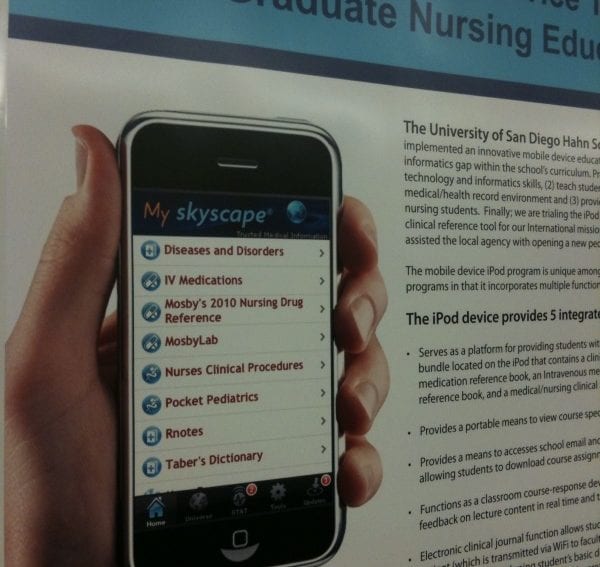Send to a friend
The details you provide on this page will not be used to send unsolicited email, and will not be sold to a 3rd party. See privacy policy.
[CAPE TOWN] A global organisation that promotes mobile health solutions, mHealth Alliance, will relocate from the United States to South Africa this year.
The plan is to move the organisation’s head office from the US-based United Nations Foundation to South Africa-headquartered Praekelt Foundation to scale up mHealth projects at country level in the global South, according to a statement released by the alliance last month (6 December).
Mobile health projects use mobile devices to deliver health-related information to researchers, health practitioners and patients.
“We recognise that with around 700 days left to achieve the current Millennium Development Goals, there is [a] need for even more concerted engagement on capacity building for NGOs [non-governmental organisations], governments and private sector partners, and [building of] enabling policy environment for mHealth at the country and regional levels.”
Patricia Mechael, mHealth Alliance
Patricia Mechael, executive director of the mHealth Alliance, says the transition will sharpen their strategy to systematically address critical gaps such as country-level policy developments and institutional capacity building, and needs identified by the mHealth and broader global health communities.
“We recognise that with around 700 days left to achieve the current Millennium Development Goals, there is [a] need for even more concerted engagement on capacity building for NGOs [non-governmental organisations], governments and private sector partners, and [building of] enabling policy environment for mHealth at the country and regional levels,” Mechael tells SciDev.Net.
Mechael explains that in the next few months, the UN Foundation, the mHealth Alliance team and its board members will work with the Praekelt Foundation and other mHealth stakeholders to develop and implement a transition plan.
More information about exact dates and financial details for the move will be released as that plan takes shape, Mechael adds.
The Praekelt Foundation, a leader in country-focused mobile technology for development and an existing partner of the alliance with offices in Kenya, Nigeria and South Africa, naturally suited hosting the alliance’s head office, she says.
Kathy Calvin, president and chief executive officer of the UN Foundation, says her organisation will remain a strong advocate for innovative solutions to support the alliance’s efforts to mainstream mobile technology into health systems.
The continued commitment to mHealth will be evident in its continuing support of the Mobile Alliance for Maternal Action partnership, which uses mobile phones to deliver life-saving health messages to women throughout the world, says Calvin.
Close to 300 organisations from 59 countries are members of mHealth Alliance which has delivered 26 grants and technical support to institutions in 14 countries, including Ghana, India, Kenya, Malawi, Nigeria, Senegal, South Africa, Tanzania, Uganda and Vietnam.
According to Mechael, the relocation will not affect projects in the 14 countries.
Stefanus Snyman, a health professions educationist at Stellenbosch University’s Centre for Health Professions Education, South Africa, welcomes the relocation and considers it as a proactive approach.
Snyman tells SciDev.Net: “In Sub-Saharan Africa this can make a huge difference to strengthen health systems and improve patient outcomes. You need to be in a place where you can get your hands dirty”.
This article has been produced by SciDev.Net's Sub-Saharan Africa desk.














